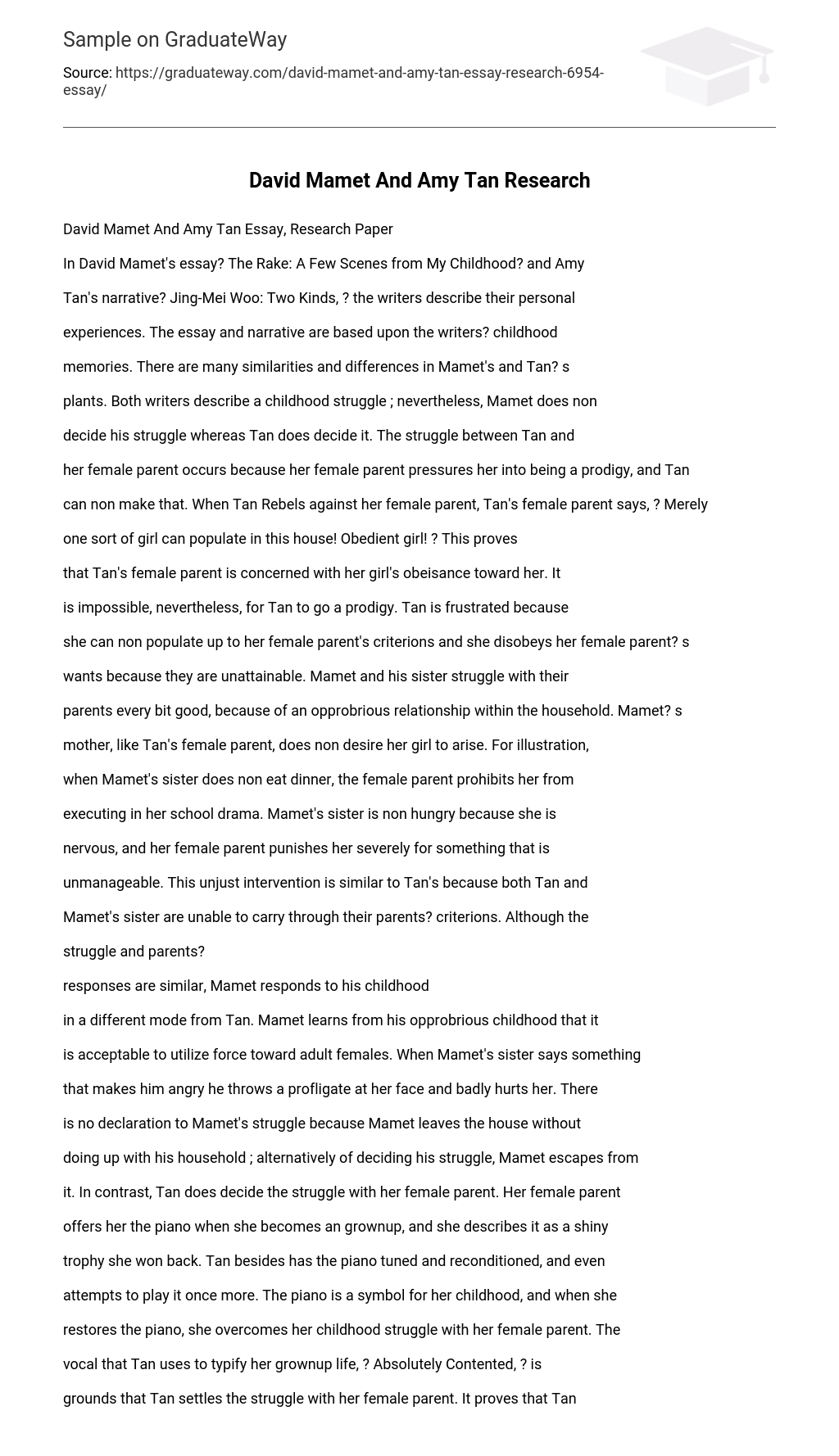The Rake: A Few Scenes from My Childhood and Amy Tan’s narrative Jing-Mei Woo: Two Kinds, the writers describe their personal experiences. The essay and narrative are based upon the writers childhood memories. There are many similarities and differences in Mamet’s and Tan s plants. Both writers describe a childhood struggle ; nevertheless, Mamet does non decide his struggle whereas Tan does decide it.
The struggle between Tan and her female parent occurs because her female parent pressures her into being a prodigy, and Tan can non make that. When Tan Rebels against her female parent, Tan’s female parent says, Merely one sort of girl can populate in this house! Obedient girl! This proves that Tan’s female parent is concerned with her girl’s obeisance toward her. It is impossible, nevertheless, for Tan to go a prodigy. Tan is frustrated because she can non populate up to her female parent’s criterions and she disobeys her female parent s wants because they are unattainable.
Mamet and his sister struggle with their parents every bit good, because of an opprobrious relationship within the household. Mamet s mother, like Tan’s female parent, does non desire her girl to arise. For illustration, when Mamet’s sister does non eat dinner, the female parent prohibits her from executing in her school drama. Mamet’s sister is non hungry because she is nervous, and her female parent punishes her severely for something that is unmanageable. This unjust intervention is similar to Tan’s because both Tan and Mamet’s sister are unable to carry through their parents criterions. Although the struggle and parents responses are similar, Mamet responds to his childhood in a different mode from Tan.
Mamet learns from his opprobrious childhood that it is acceptable to utilize force toward adult females. When Mamet’s sister says something that makes him angry he throws a profligate at her face and badly hurts her. There is no declaration to Mamet’s struggle because Mamet leaves the house without doing up with his household ; alternatively of deciding his struggle, Mamet escapes from it. In contrast, Tan does decide the struggle with her female parent. Her female parent offers her the piano when she becomes an grownup, and she describes it as a shiny trophy she won back.
Tan besides has the piano tuned and reconditioned, and even attempts to play it once more. The piano is a symbol for her childhood, and when she restores the piano, she overcomes her childhood struggle with her female parent. The vocal that Tan uses to typify her grownup life, Absolutely Contented, is grounds that Tan settles the struggle with her female parent. It proves that Tan does non fault her female parent ; instead, Tan forgives her female parent for the childhood struggle Tan dealt with. Mamet and Tan describe their childhoods likewise, because they hold similar dissensions with their parents.
However, the major difference between the two writers is the manner they grow out of their childhood struggles. Mamet does non decide the struggle with his household with his household whereas Tan makes up with her female parent in the terminal. Whether or non a individual settles a struggle is non reliant on the nature of the struggle itself. Resolution depends on the personalities and ethical motives of the people involved.





